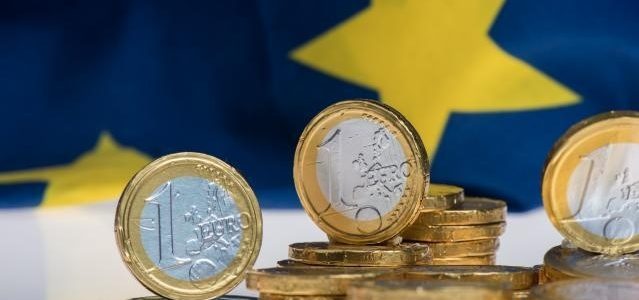
A busy dancer in her spare time, Mrs. Christine Lagarde could not dance at a well-known disco in Frankfurt with the other colleagues of the European Central Bank, in which she holds the presidency. It was midnight on 31 December 2001, when the first banknotes and coins were issued in twelve countries introducing the single European currency, the Euro, into the world economy. For 304 million Europeans it was a major monetary revolution, which some viewed with strong suspicions. Nevertheless, in Berlin from the time the first euro was issued and at 9 a.m. As of January 1, 2002, 200,000 withdrawals had been made, while in Paris the corresponding figure exceeded 450,000 and represented over 30 million euros.
This successful entry of the single European currency into the daily lives of many Europeans immediately roused its enemies, who without delay began to accuse the single currency of rising prices and losing national monetary sovereignty. These attacks lasted for several years, severely affected the European economy in terms of foreign direct investment and created the well-known creeping anti-Germanism, with the ultimate goal of dismantling the European Union and especially the Eurozone. In the last years of the financial crisis of 2008, American speculators had invested, as well as Russian “siloviks” who are Vladimir Putin’s praetors. Nevertheless, the euro, when the most serious crisis of its course broke out in 2009, thanks to ECB President Mario Draghi, endured and its resilience literally saved the eurozone. And this salvation is looming large, now that the pandemic is raging.
For the drachma-lovers and other Greek economic “prophets”, we point out that if Greece was not a member of the Eurozone, apart from the final collapse of its economy, today it would have about a trillion euros in foreign debt and its inhabitants are a question if they could in winter to be warmed for more than one to two hours. It is better not to talk about inflation and competitiveness. As for the 6 Greeks out of 10 who in July 2015 voted “NO” in the eurozone, our wish is that they learned something about what populism means – deception.
The same is true in the case of the French. From 62% who in 2014 considered the euro “bad” and waited for far right winger Marin Lepen to get them out of the eurozone, today only 15% wish and expect in vain something like that. Almost eight out of ten citizens in the eurozone now know what role the single currency has played in the successive crises, despite its institutional weaknesses, which are also being rectified over time. The French, Spaniards, Italians and Portuguese, for example, now know better than the “prophets” of the economy what a painful state of chaos their countries would have found themselves in if it had not been for the single currency.
They can easily guess at what prohibitive levels, given the size of their public and commercial deficits, their interest rates would be. They know that the “whatever it costs” policy implemented during the pandemic would never have been possible without the unconditional support of the ECB.
Nostalgia for the franc in France is now very rare, even among the far right. Marine Le Pen, who has long argued that economic sovereignty was unthinkable without monetary autonomy, abandoned the exit from the euro, as did Eric Zemmour. After assuring that the abandonment of the euro would allow the franc to “depreciate by 20 to 30%, as General de Gaulle did in 1958” and “protect itself from German industry using the euro as a war machine to destroy the French and Italian industries “, the candidate no longer supports the great replacement of the euro by a national currency and considers it much more productive in the elections to demand the return of France to the time of Napoleon Bonaparte !!
Unfortunately, the other side of the coin of joining the eurozone for countries like Greece and France, is the perpetuation of trade union machinations and the client relationships that sustain these, which in itself undermines the much-desired EU economic union. However, the Recovery Fund and the projected stimulus of a productive Europe are a promising ray of light now shining in 2022.
Latest News

Mitsotakis Unveils €1 Billion Plan for Housing, Pensioners, Public investments
Greek Prime Minister Kyriakos Mitsotakis has announced a new set of economic support measures, worth 1 billion euros, aiming to provide financial relief to citizens.

Alter Ego Ventures Invests in Pioneering Gaming Company ‘Couch Heroes’
Alter Ego Ventures' participation in the share capital of Couch Heroes marks yet another investment by the Alter Ego Media Group in innovative companies with a focus on technology.

Corruption Still Plagues Greece’s Driving Tests
While traffic accidents continue to claim lives on Greek roads daily, irregularities and under-the-table dealings in the training and testing of new drivers remain disturbingly widespread

Pope Francis Died of Stroke and Heart Failure Vatican Confirms
As news of the official cause of death spread, tributes poured in from across the globe. The 1.4 billion-member Catholic Church is united in grief, remembering a pope who championed inclusion, justice, and compassion

Increase in Both Museum Visits, Revenues for 2024
As expected, the Acropolis was the top archeological site in the country, followed by Sounion, Mycenae, the ancient theater of Epidaurus, and Vergina in northern Greece

Where Greece’s Tourists Come From: A Look at 2025’s Top Visitor Markets
The United Kingdom continues to hold the top spot as the largest source of incoming tourism, with 5.6 million seats booked for Greece this summer — up 2.2% from last year. This accounts for 20% of all international air traffic to Greece

Pope Francis: A Pontiff Who Reshaped the Papacy and Sparked a Global Conversation
His first words from the balcony of St. Peter’s Basilica—“Brothers and sisters, good evening”—set the tone for a pontificate that would challenge norms, favor mercy over dogma, and bring the papacy closer to the people.

When Blue Skies was Unmasked as ND’s Political ‘Slush Fund’
The fact that so many top New Democracy (ND) party cadres were paid by the firm Blue Skies, owned by Thomas Varvitsiotis and Yiannis Olympios, without ever citing this publicly, raises very serious moral issues, regardless of the legality

Greek Women’s Water Polo Team Top in the World after 13-9 Win Over Hungary
The Greek team had previously defeated another tournament favorite, the Netherlands, to reach the final.

S&P Raises Greek Rating; BBB with Stable Outlook
S&P’s decision raises the Greek economy to the second notch of investment grade ladder, at BBB with a stable outlook.











![Πλημμύρες: Σημειώθηκαν σε επίπεδα ρεκόρ στην Ευρώπη το 2024 [γράφημα]](https://www.ot.gr/wp-content/uploads/2025/04/FLOOD_HUNGRY-90x90.jpg)




![Ξενοδοχεία: Μεγάλο το ενδιαφέρον για επενδύσεις στην Ελλάδα – Η θέση της Αθήνας [γραφήματα]](https://www.ot.gr/wp-content/uploads/2025/03/Athens-hotels-90x90.jpg)
























 Αριθμός Πιστοποίησης
Αριθμός Πιστοποίησης